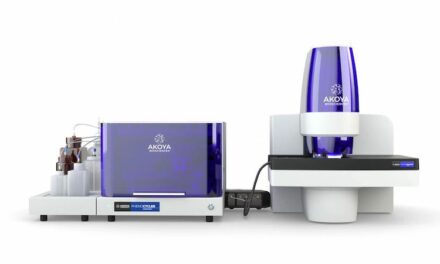While not a substitute for medical advice, personalized epigenetic testing offers individuals a proactive approach to managing their health.
By Andy Lundin
The ubiquity of at-home testing as a result of the COVID-19 pandemic has led to an expansion in the types of personalized screening tools available to the public and is continuing the paradigm shift to more consumer-to-lab testing as opposed to physician-to-lab.
Beyond the more reactive side of at-home diagnostics—e.g. antigen rapid tests for diagnosing COVID-19—new diagnostic tools are also focusing on maintaining a person’s current state of health rather than intervening on health challenges later.
HKG epiTherapeutics is one company that sees the significance of proactive testing, particularly in the personalized epigenetics space.
“At HKG, we are focused on the epigenome and maintaining health rather than intervening after it is too late. We care about ensuring that there is a proper balance of the methylation cycle. Genetic variation in the genes in the MetaGen panel impacts the methylation cycle and thus epigenetics,” says Professor Moshe Szyf, PhD, the founder and CEO of HKG epiTherapeutics.
Giving the Consumer Control Through Personalized Epigenetics
The goal of the test is to inspire consumers to take control of their health, Szyf says. By having access to information about their genetic makeup, consumers can gain more responsibility of their health journey, according to the company.
“The MetaGen panel will provide guidance on certain dietary changes that a consumer needs to act on as well as provide an idea on how these might affect methylation sensitive regions in DNA like the epiAge clock, which is packaged with the MetaGen panel,” says Szyf.
Testers can then use the information to consider new lifestyle advice, nutritional supplementation, or personalized drug treatment.
“Once dietary changes are made, the test allows you to follow up the impact of the changes on your methylation by giving insights on the DNA methylation clock,” says Szyf.
Further reading: Harnessing Epigenetics for Advanced Cancer Detection
A Supplemental Health Test
This type of testing does not serve as a substitution for a visit with a healthcare provider, Szyf stressed.
“Obviously, their specific health care provider would still play an important role,” he says. “However, this panel/test would benefit consumers who are interested in sharing more of the responsibility and ownership over their health.”
Indeed, Szyf stressed the significance of the public having access to epigenetic testing.
“To date, the field of personalized medicine focuses on genetics,” he says. “Genetics is what we are born with, and although inter-individual genetic differences can have an impact on personal health, as is the case with our new product, MetaGen, genetics doesn’t record the vast inter-individual differences in experiences and exposures that happen to us in the womb and throughout life—these are reflected in epigenetic differences.”
Andy Lundin is CLP’s associate editor.
Featured image: Moshe Szyf, PhD, the founder and CEO of HKG epiTherapeutics in the HKG lab. Photo: HKG epiTherapeutics





